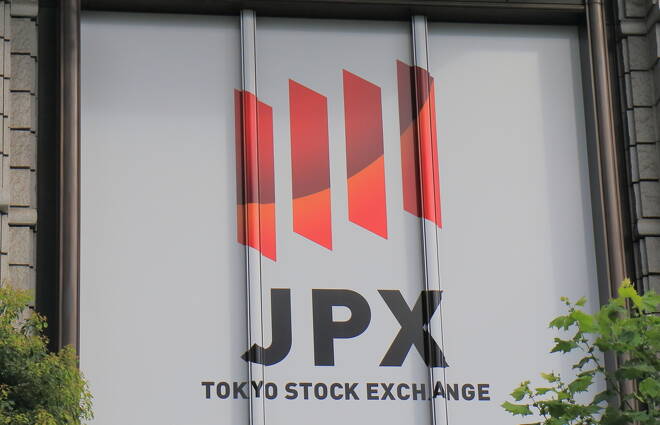Advertisement
Advertisement
Asia-Pacific Markets: Stocks Fall on China Manufacturing Miss, Financial Regulator Crackdowns
By:
Foreigners turned net sellers of Japanese equities on concerns that Japan’s stricter curbs to contain the virus will tamper its economic growth.
The major Asia-Pacific stock indexes finished lower on Friday as weaker-than-expected Chinese factory indicators and concerns about Beijing’s clampdown on internet companies weighed on sentiment.
Friday’s session followed an overnight session on Wall Street where the major U.S. indexes finished higher. Economic activity stateside picked up in the first three months of 2021 as GDP rose 6.4% on an annualized basis, but it fell slightly short of expectations.
Cash Market Performance
On Friday, Japan’s Nikkei 225 Index settled at 28812.63, down 241.34 or -0.83%. Hong Kong’s Hang Seng Index finished at 28724.88, down 578.38 or -1.97% and South Korea’s KOSPI Index closed at 3147.86, down 26.21 or -0.83%.
In China, the benchmark Shanghai Index settled at 3446.86, down 28.04 or -0.81% and Australia’s S&P/ASX 200 Index finished at 7025.80, down 56.50 or -0.80%.
China’s Factory Activity Growth Slows on Supply Bottlenecks, Soft Demand
China’s factory activity growth slowed and missed forecasts in April as supply bottlenecks and rising costs weighed on production and overseas demand lost momentum.
The country’s official manufacturing purchasing managers’ index (PMI) fell to 51.1 in April from 51.9 in March, data from the national Bureau of Statistics (NBS) showed on Friday.
China Crackdown
China’s financial regulator ordered 13 internet platforms to strengthen compliance as part of the country’s ongoing antitrust clampdown on the sector, worrying investors within and outside the country.
Reuters reported that China is preparing to hit Tencent Holding Ltd. with a fine of at least $1.54 billion as part of a larger antitrust crackdown on its major internet firms, according to a report in Reuters. That sum would be large enough to serve as a strong warning to the industry, but less than the record $2.75 billion penalty fine slapped on Alibaba earlier this month.
Foreigners Turn Net Sellers of Japanese Stocks on Pandemic Concerns
Foreign investors turned net sellers of Japanese equities in the week ended April 23 on concerns that Japan’s stricter curbs to contain the virus will tamper its economic growth, as the country saw a surge in domestic infections this month.
Overseas investors sold a net 296.24 billion yen ($2.72 billion) worth of stocks last week, marking their first net selling in three weeks, data from Japanese exchanges showed.
Japan declared “short and powerful” states of emergency in its biggest cities last week, as it struggled to contain a resurgent coronavirus pandemic.
Australia Shares End Lower, Mark Best Month in Five
Australian shares ended lower on Friday, with Beach Energy’s trading update weighing on sentiment, even as the index marked its best month in five.
Beach Energy Ltd led losses as it plunged 24% after slashing reserve estimates and earnings outlook following a review of declining output at its Western Flank field in South Australia.
Gold stocks tumbled 2.2% with the country’s biggest producer Newcrest Mining shedding up to 2.6% as bullion eased due to higher U.S. Treasury yields denting its appeal.
The energy subindex skidded 1.7%, hurt by Beach Energy and a fall in oil prices due to concerns over wider lockdowns in major oil consumers India and Brazil.
For a look at all of today’s economic events, check out our economic calendar.
About the Author
James Hyerczykauthor
James Hyerczyk is a U.S. based seasoned technical analyst and educator with over 40 years of experience in market analysis and trading, specializing in chart patterns and price movement. He is the author of two books on technical analysis and has a background in both futures and stock markets.
Advertisement
